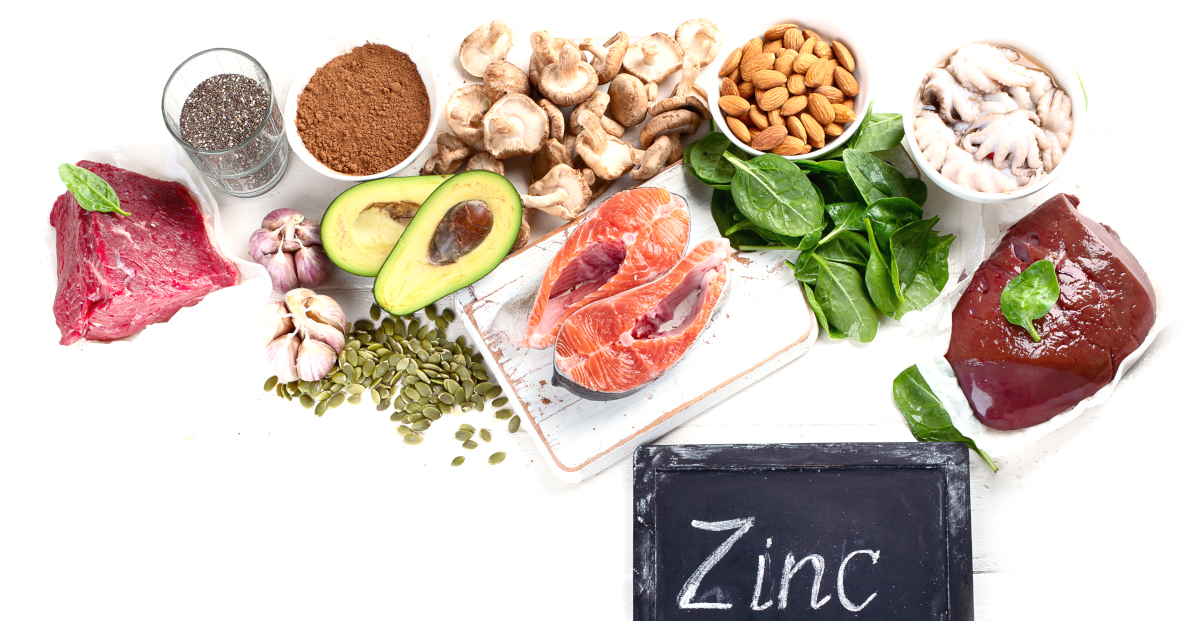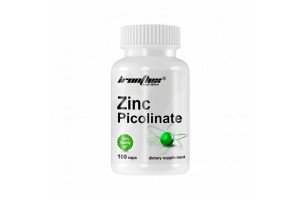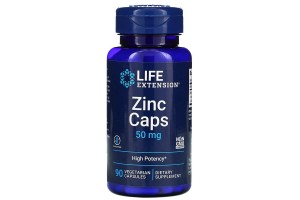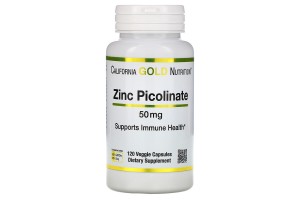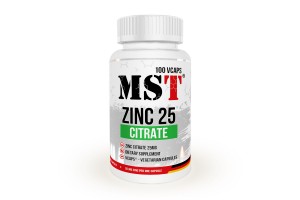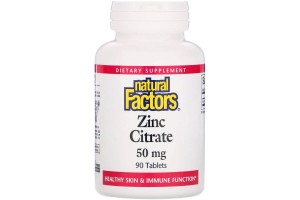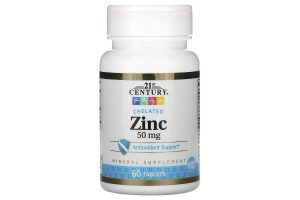Zinc is rightfully one of the most important trace elements that contributes to the correct and full functioning of the body. Zinc takes part in a huge number of important processes in your body. We will tell you more about all this, as well as dosages, proper use and forms of zinc in this article.
The effect of zinc on the body
Zinc has a tremendous effect on the functioning of the body as a whole, and one way or another takes part in most important processes in the human body. Zinc activates a number of enzymes, is involved in metabolism. It is found in over 200 enzymes and participates in more enzymatic reactions than any other mineral. Most enzymes are composed of protein and an essential trace mineral, as well as possibly a vitamin. If the enzyme lacks a trace element or vitamin, it cannot perform its function qualitatively. Due to the central role of zinc in such a number of enzymes, a decrease in its level is reflected in almost all body systems. In addition to the role it plays in enzymes, zinc is required for many hormones to function properly, including insulin, growth hormone, and sex hormones.
The health benefits of zinc are extremely varied due to the fact that it is used in so many enzymes. It is very important for immunity, wound healing, sensory function, sexual function and skin health.
The main functions of zinc:
- affects spermatogenesis in the male body
- takes part in metabolic processes
- good for immunity
- prevents hair loss
- zinc reduces acne and inhibits inflammatory markers that contribute to acne
- zinc is essential for normal thyroid function
- good for bones: a study in patients with thalassemia major (a blood disorder) showed a significant increase in bone mineralization after 18 months of taking 25 mg per day
Zinc deficiency
Severe zinc deficiencies are extremely rare in developed countries, but research suggests that many people in the United States, especially the elderly, have some zinc deficiency. On the territory of our state, such studies were not carried out, but most likely the situation in Ukraine is similar. Zinc deficiency can be caused by decreased dietary intake of zinc or impaired absorption of zinc. According to nutritional surveys, the average zinc intake is only 47-67% of the RDA. Symptoms of mild zinc deficiency can include reduced resistance to infectious diseases, delayed wound healing, impaired sense of smell and taste, and a variety of minor skin conditions, including acne, eczema, and psoriasis. Among other signs,often correlated with low zinc levels, impairment of night vision, growth retardation, testicular atrophy, mouth ulcers, white plaque on the tongue, and severe halitosis occur. Zinc plays an important role in the body's fight against viral infections, especially the herpes virus. Zinc is included in the main list of drugs of the official protocols for the treatment of coronavirus infection in many countries of the world.Zinc also helps get rid of worms and other parasites, in particular, it is part of many antimalarial agents. The role of zinc deficiency in the occurrence of atherosclerosis, liver cirrhosis and sexual dysfunctions of varying degrees has been proven.especially - the herpes virus. Zinc is included in the main list of drugs of the official protocols for the treatment of coronavirus infection in many countries of the world.Zinc also helps to get rid of helminths and other parasites, in particular, it is included in many antimalarial agents. The role of zinc deficiency in the occurrence of atherosclerosis, liver cirrhosis and sexual dysfunctions of varying degrees has been proven.especially - the herpes virus. Zinc is included in the main list of drugs of the official protocols for the treatment of coronavirus infection in many countries of the world.Zinc also helps to get rid of helminths and other parasites, in particular, it is included in many antimalarial agents. The role of zinc deficiency in the occurrence of atherosclerosis, liver cirrhosis and sexual dysfunctions of varying degrees has been proven.
Factors prone to zinc deficiency
Decreased intake:
- acute infectious diseases / inflammatory processes;
- alcoholic cirrhosis;
- alcoholism;
- anorexia nervosa;
- burns;
- post-traumatic syndrome;
- protein deficiency;
- vegetarian diet;
- starvation.
Decreased assimilation:
- alcoholism;
- celiac disease;
- chronic blood loss;
- diabetes;
- diarrhea;
- a diet high in dietary fiber;
- a diet high in calcium / zinc ratio;
- a diet high in iron / zinc ratio;
- inflammatory bowel disease;
- bowel resection;
- liver disease;
- pancreatic insufficiency.
Increased demand:
- elderly age;
- pregnancy and lactation;
- taking oral contraceptives;
- period of active growth or puberty.
Foods containing zinc
Many foods are rich in zinc. But the fact is that, of any zinc ingested with food, only about 20% will be assimilated, at best - 30%.
Zinc is found in a fairly large amount in foods such as:
- seafood
- meat
- sunflower and pumpkin seeds
- sprouted wheat
- cocoa
- eggs
- walnuts
- oysters - they hold the record and contain 200-500 mg of zinc per 100 grams, depending on growing conditions.
Available forms and compounds (salts) of zinc.
There is a wide variety of zinc forms available today. Zinc sulfate has been used in many clinical trials, but in this form it is not as readily absorbed as, for example, zinc picolinate, acetate, citrate, bisglycinate (chelate), oxide or monomethionine, each of which is a superior form of zinc. There is evidence that all of these forms are highly digestible and effective. Most zinc lozenges use zinc gluconate, which appears to be an effective form for this application.
Approximate assimilation in% of each of their forms of zinc:
- zinc picolinate (61%)
- zinc chelate (bisglycinate) (61%)
- zinc citrate (61%)
- zinc acetate (60.9%)
- zinc gluconate (60.9%)
- zinc monomethionine (58%)
- zinc oxide and sulfide (48%).
The average percentage of digestibility is indicated, since it may slightly differ depending on the individual characteristics of the organism. The percentage of zinc absorption also depends on its use with or without other supplements. The intake of zinc oxide and zinc sulfide can most of all lead to irritation of the stomach and intestinal mucosa, which leads to nausea and discomfort in the gastrointestinal tract.
Applied dosage:
For adults, the dosage of zinc in the dietary supplement, which is taken to improve overall health, as well as during pregnancy and lactation, is 15-20 mg. For children, this dosage is 5-10 mg. When a zinc-containing dietary supplement is used as a remedy for severe health problems, the dosage is 30-45 mg for men and 20-30 mg for women. Do not exceed this dosage. For colds, take 15-25 mg of pure zinc. Since high zinc levels can negatively affect the immune system, it is not recommended to take more than 150 mg of zinc per day for longer than a week. The duration of the course of zinc intake is on average 30-45 days or as recommended by your doctor. Long-term use of zinc supplements can cause impaired absorption of copper and magnesium into the blood. With a long course of administration, it is recommended to increase their consumption. The course of admission for more than 60 days must be agreed and corrected with your doctor! Please note that it is not advisable to take zinc with coffee or tea, as they contain tannin, which forms a film through which zinc is not absorbed into the bloodstream.
Possible side effects:
When taken on an empty stomach (especially if zinc sulfate is used), zinc-containing dietary supplements can cause gastrointestinal upset and nausea. Long-term use at a dosage of 150 mg or more per day can lead to anemia, a decrease in HDL cholesterol levels and suppression of immunity.
Interaction with medicinal products:
Zinc can impair the absorption of tetracycline and ciprofloxacin. Zinc supplements should be taken at least 2 hours before or 2 hours after taking these antibiotics.
0 reviews / Write a review
